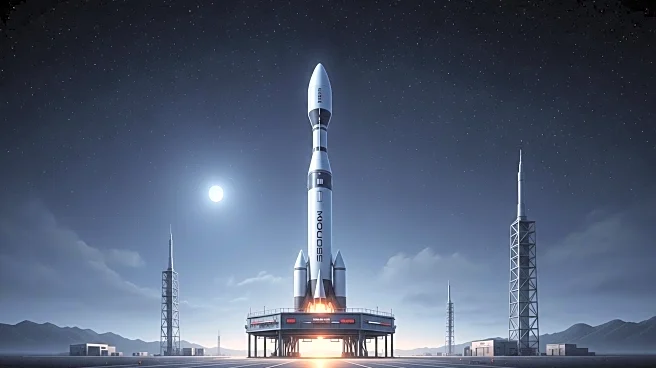What is the story about?
What's Happening?
The U.S. Space Force has awarded SpaceX the majority of its upcoming national security missions, solidifying the company's role as a key launch provider. SpaceX received contracts for five out of seven military missions, valued at $714 million, as part of the National Security Space Launch (NSSL) program. These missions include launching the 12th Wideband Global Satcom communications satellite and a satellite for the National Reconnaissance Office (NRO), along with three undisclosed payloads. The United Launch Alliance (ULA) was awarded the remaining two missions, worth $428 million. Blue Origin was not eligible for this round as its New Glenn rocket awaits certification. The NSSL program aims to secure launch service providers for 54 military missions scheduled between 2027 and 2032.
Why It's Important?
This development underscores SpaceX's growing influence in the U.S. defense sector, particularly in space operations. By securing the majority of the Space Force's missions, SpaceX not only strengthens its financial standing but also enhances its strategic importance in national security. The reliance on SpaceX reflects a shift from traditional providers like ULA, indicating a broader acceptance of commercial space companies in government contracts. This could lead to increased competition and innovation in the aerospace industry, potentially lowering costs and accelerating technological advancements. The decision also highlights the challenges faced by Blue Origin, which must achieve certification to compete for future contracts.
What's Next?
SpaceX is expected to continue its dominance in the NSSL program, potentially securing more than half of the total 54 missions. ULA will handle around 19 missions, while Blue Origin, pending certification, could launch up to seven missions. The certification of Blue Origin's New Glenn rocket will be crucial for its future participation. Meanwhile, SpaceX's continued success in securing government contracts may prompt other commercial space companies to enhance their capabilities and competitiveness.
















